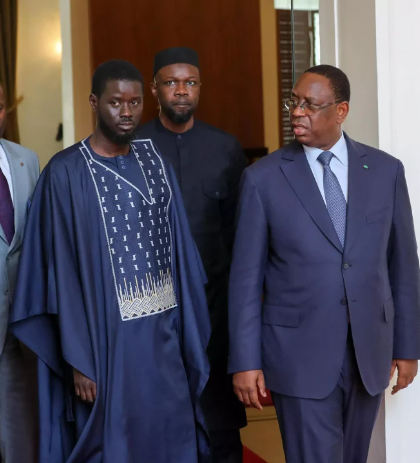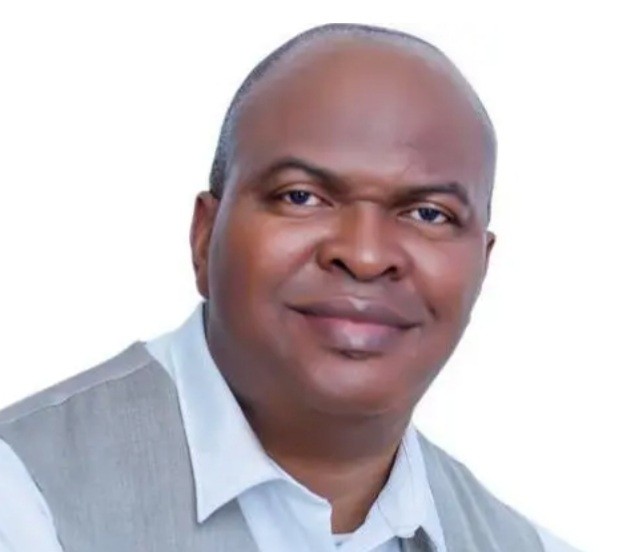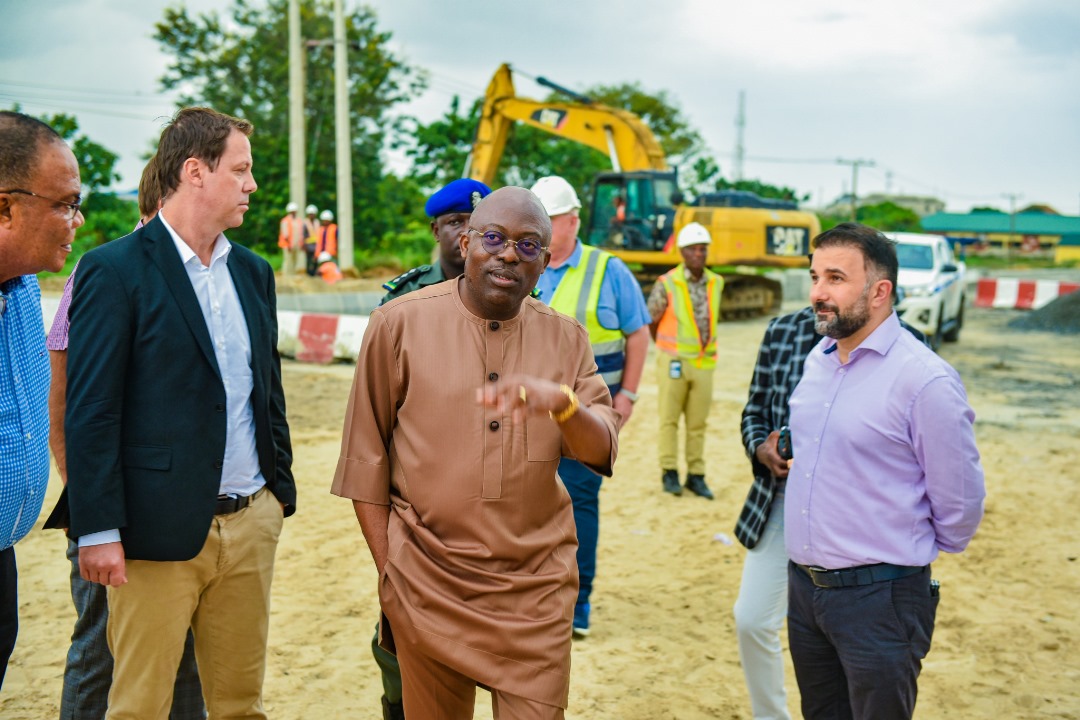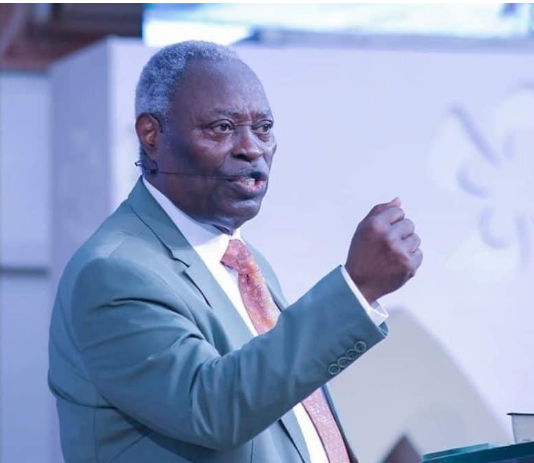By Paul Ejime
WHEN FORMER President Macky Sall shook hands and handed the mantle of leadership to his successor President Bassirou Diomaye Faye, Senegal’s 5th, and youngest, on the 2nd of April 2024, he might have wondered what could have been, the “what ifs” and “if onlys.”
After serving as Prime Minister and Speaker/President of the National Assembly under former President Abdoulaye Wade, and then president of the Republic for 12 years, Sall had the golden opportunity to exit power with dignity. But like most politicians, he became blinded by greed and the trappings of office such that he could not resist the bait of tenure elongation or “third-term syndrome,” which has destabilized some African countries and put ECOWAS, the regional economic bloc in a reputational quagmire.
Before 2021, Senegal held the hope as an anchor of stability in politically restive West Africa, which has acquired the dubious reputation as a “military coup zone.”
With an estimated 18 million predominantly Muslim population (more than 95% of Senegalese are Muslims), the country enjoys exemplary religious tolerance. It remains one of the two countries in West Africa yet to experience a military coup since its independence from France in 1960. The other exception is Cabo Verde.
To its credit, Senegal has also enjoyed relatively long periods of peaceful transfer of power from one government to another with Faye as its fifth and youngest president at age 44. Independent President Sedar Senghor and his successor Abdou Diouf, both served 20 years each, while the third and fourth presidents Wade and Sall were in power for 12 years each and both had attempted but failed to prolong their mandate.
Sall, who was at the forefront of the opposition against Wade’s third-term botched plan, must have been encouraged by ECOWAS’ weakness to rein in leaders who got away with impunity, changing national constitutions, vote rigging, or other forms of manipulations, considered as “political or constitutional coups,” which are as deadly as military putsches now on the increase in the region.
The change of Cote d’Ivoire’s constitution in 2016 by President Alassane Ouattara followed by the referendum and the 2020 national election which President Alpha Conde rushed through during the Covid-19 pandemic period in Guinea readily come to mind.
These undemocratic practices were usually followed by deadly violent street protests; devastating political divisions and served as triggers or drivers of political conflicts and instability in the countries involved and by extension, the region.
Senegal was not spared by Sall’s political misadventures. After three years of a political rollercoaster, he reluctantly announced that he would not be on the ballot for the 2024 presidential election originally fixed for 25 February. Meanwhile, the nation for the first time in its history, recorded more than 1,500 political detainees, including political opponents.
Faye himself was in jail awaiting trial on charges including contempt of court and defamation. The Sall government also proscribed the main opposition Coalition PASTEF led by popular opposition leader Ousmane Sonko, who was also tried and convicted for radicalising the youth, in what many observers considered as political persecution and a ploy to stop him from running for the presidency.
Sall’s authoritarianism and intolerance of opposition grew by the day. Contrary to the provisions of regional protocols, he sacked members of the electoral commission of Senegal a few months before the national election, and at least 20 Senegalese were killed in clashes with security forces during street protests against the government.
A day before the commencement of campaigns for the presidential election, Sall unleashed a presidential decree on his country, postponed the vote indefinitely, and instead, called for a so-called national dialogue.
Acting at the behest of the government, the National Assembly wadded into the political fray, and in a move similar to the invasion of the American Congress on 6 January 2021, paramilitary Gendarmes stormed Senegal’s National Assembly to evict opposition MPs to pave the way for the passage of a controversial law postponing the presidential election from February to December 2024.
The Constitutional Council, which has the final say on elections stepped in to nullify Sall’s decree and the controversial law passed by the Parliament. The Council also insisted that the election must be held before the 2nd of April, the end of Sall’s second term mandate.
This forced the Sall government to move the presidential vote from 25 February to 24 March 2024. Thanks to the resilience, commitment, and determination of the Senegalese population, especially the vibrant civil society groups, the Sonko-Faye opposition alliance prevailed with Faye beating Sall’s ruling APR party candidate, former Prime Minister Amadou Ba by 54% to 35% vote at the poll.
Balloting was generally peaceful on polling Day, with local and international observers describing the electoral process as transparent and all of Faye’s rivals conceding defeat before the announcement of poll results.
A humiliated Sall also congratulated Faye and wasted no time in flying out of the country as the new president and his political mentor Sonko, who has been appointed Prime Minister, settled down to the task of governance.
Some of the immediate challenges facing the new administration include healing a politically divided nation, empowering and gainfully engaging Senegal’s largely unemployed youthful population, fighting corruption, and growing the national economy, by optimizing the benefits from new sources of revenue – oil and gas.
It remains to be seen what the Faye-Sonko pair will make of political power, but the positive end to the political crisis in Senegal should be a turning point for the country to rediscover its democratic ethos. Also, coming after another successful and transparent election in Liberia last June, ECOWAS should capitalize on this opportunity to convince four of its member States under military dictatorships that democracy and constitutional order are the way to go.
The retreat of democracy and growing instability in West Africa and the wider African continent today is within the context of the global landscape characterized by the decline of multilateralism, and the convergence of multiple threats and opportunistic vectors, such as terrorism and insecurity, geopolitical shifts, economic downturns, climate and environmental ecosystem changes, sociocultural dynamics, and digital advancements, especially the “invasion” of social media.
Even so, the erosion of freedom, deterioration of the state of the rule of law, and threats to democracy, after the euphoria that greeted the wave of multiparty democracy of the late 1990s and early 2000s in the ECOWAS region, had been encouraged largely by ineptitude, insincerity, sit-tight disposition of the political leaders and their refusal or inability to check political excesses among themselves.
As a trailblazer among the eight African Regional Economic Communities (RECs), ECOWAS’ achievements in conflict prevention, management, and resolution in Member States such as Liberia, Sierra Leone, Guinea, Cote d’Ivoire, Niger, and The Gambia, are well-documented.
The relevant, tested, and tried instruments and protocols are there, but political will and resolve to act are lacking. To whip military-ruled Mali, Guinea, Burkina Faso, and Niger back on the democratic line, ECOWAS leaders, the Commission, and other Institutions must demonstrate renewed commitment to upholding the regional integration principles.
For instance, provisions of the 2001 regional Supplementary Protocol on Democracy and Good Governance which emphasizes “zero tolerance” for unconstitutional change of government should apply to all “coups” whether political, constitutional, or ballot box coups.
Beyond the successes in Liberia and Senegal, warning signs are already ominously palpable in Togo, where the government is forcing through a dubious change from a presidential to a parliamentary system in a manner, that critics see as a ploy for tenure elongation, amid reported clamp down on the opposition and voices of dissent.
ECOWAS should not stand by and watch until situations deteriorate before it intervenes. At a time when the region should be consolidating on democracy, four of the 15 ECOWAS member States are ruled by soldiers, while three of the four have served notice of their intention to quit the regional organization.
Two other member States -The Gambia and Guinea Bissau, are hosting ECOWAS military stabilization Missions, due to instability, while regional leaders recently agreed that a similar Mission be dispatched to a third country, Sierra Leone.
Instead of propping up sitting governments with military missions, which some leaders are known to have misused against the opposition, ECOWAS should encourage Member States to eschew bad governance, and violations of citizens’ rights, but respect national constitutions, the rule of law, and also stop rigging elections.
Also, to avoid the growing criticism of foreign interference, ECOWAS should assert its independence with pro-West African critical thinking and strategic policy thrusts consistent with its vision of an ECOWAS of the People instead of an ECOWAS of State or Leaders.
Nigeria, the regional powerhouse, should also lead by example to reposition the organization, which it hosts and remains the biggest financial contributor, toward fulfilling its mandate and the objectives of its founding fathers.
● Ejime is a global affairs analyst and Consultant on Peace & Security and Governance Communications





